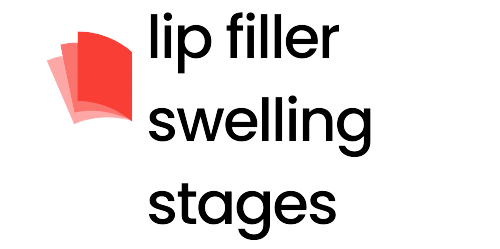Contents

The 1 Week Healing Process
Several days after The 1 Week Healing Process, patients should be careful not to engage in strenuous activities, avoid spicy and salty foods, and stay away from high temperatures. Ice should also be avoided. If the swelling persists or you are unsure about its cause, you should seek medical advice. The healing process of lip filler can take a week to a month, depending on the product used. However, if you are in no hurry to get back to normal activities, you can resume them as soon as you feel comfortable.
Avoiding strenuous exercise
While vigorous exercise has many health benefits, it is not appropriate for everyone. You should consult a doctor before beginning any strenuous exercise routine. Especially if you haven’t been active in a while, or if you have a medical condition. The CDC also provides guidelines for the Borg’s Rating of Perceived Exertion. It is important to avoid strenuous activity while your body is recovering from an illness.
Avoiding salty or spicy foods
For the first 48 hours after getting lip fillers, avoid eating salty or spicy foods. Those foods may aggravate swelling. Additionally, avoid strenuous exercise. Elevated blood pressure can lead to increased swelling. Avoid eating greasy, fried, or spicy foods for a week or two after getting lip fillers. You should also avoid licking your lips. Rinsing with water can cause your lips to swell, so avoid doing so for seven days. Water should also be avoided on the new lip pigmentation for the first 48 hours. If you must, apply ointment to protect your lips from the water. Lastly, avoid underwater swimming or soaking your lips.
If possible, avoid drinking alcohol. Alcohol may cause increased swelling. However, it is important to note that alcohol thins the blood and may interfere with healing. Drink plenty of water, take anti-inflammatory medication, and do not sleep on your face for two days following your lip filler treatment. You can also take ice packs to reduce swelling. Try to arrange your appointment to accommodate your daily schedule.
Avoiding high temperatures
For at least one week after your lip filler treatment, you should avoid extreme heat. High temperatures cause blood vessels to dilate and prolong swelling. You should avoid taking hot showers and heated exercise, as this can exacerbate swelling. You should also avoid smoking and drinking alcohol. Both of these substances will cause inflammation and worsen swelling. You should also avoid extreme humidity for at least two weeks after your lip filler treatment.
While your lips are still swollen and tender, do not smoke or even be around people who smoke. For two to three days after your lip filler treatment, avoid eating spicy or salty foods. They may worsen the swelling caused by the procedure. In addition, avoid drinking alcohol, which thins blood. It may also worsen bruising. Furthermore, vitamin E supplements can exacerbate swelling and bruising. You should avoid taking them during the first two weeks after your lip filler The 1 Week Healing Process.
Avoiding ice immediately after treatment

The 1 Week Healing Process
Ice isn’t the best idea immediately after your lip filler . It can cause bruising and swelling. Applying ice to the treated area several times a day for 10 minutes is ideal. Alternating between ice and a warm compress is also recommended. Applying ice to the treated area helps reduce swelling and bruising. Avoid drinking alcohol or smoking for several days after your treatment.
After your treatment, you should avoid kissing for at least 48 hours. High temperatures can lead to a greater amount of swelling. You should also avoid taking hot showers or exercising for 48 hours. Massage is another thing to avoid. Firm pressure may cause the injected filler to dissipate. Finally, you should avoid smoking and alcohol. These substances will increase the chance of infection. These beverages can also cause inflammation.
Avoiding hot baths
If you’re pregnant, you should avoid taking a hot bath during the first week of your pregnancy. This is because the water can become too hot too quickly, which may decrease your blood pressure and reduce oxygen levels to your baby. This can lead to complications such as stillbirth or low birth weight. Taking a hot bath may also lead to dizziness and weakness. To help prevent overheating, take shorter baths and avoid submerging your upper body.
It is important to avoid hot baths while you are healing. The water should never be hotter than your body temperature. Warm baths are better for your immune system, skin, and muscles. You can use Epsom salt to reduce the risk of infection. While taking a hot bath, make sure to avoid the incision site and avoid rough surfaces. You should also only soak for about 10 to 15 minutes.







